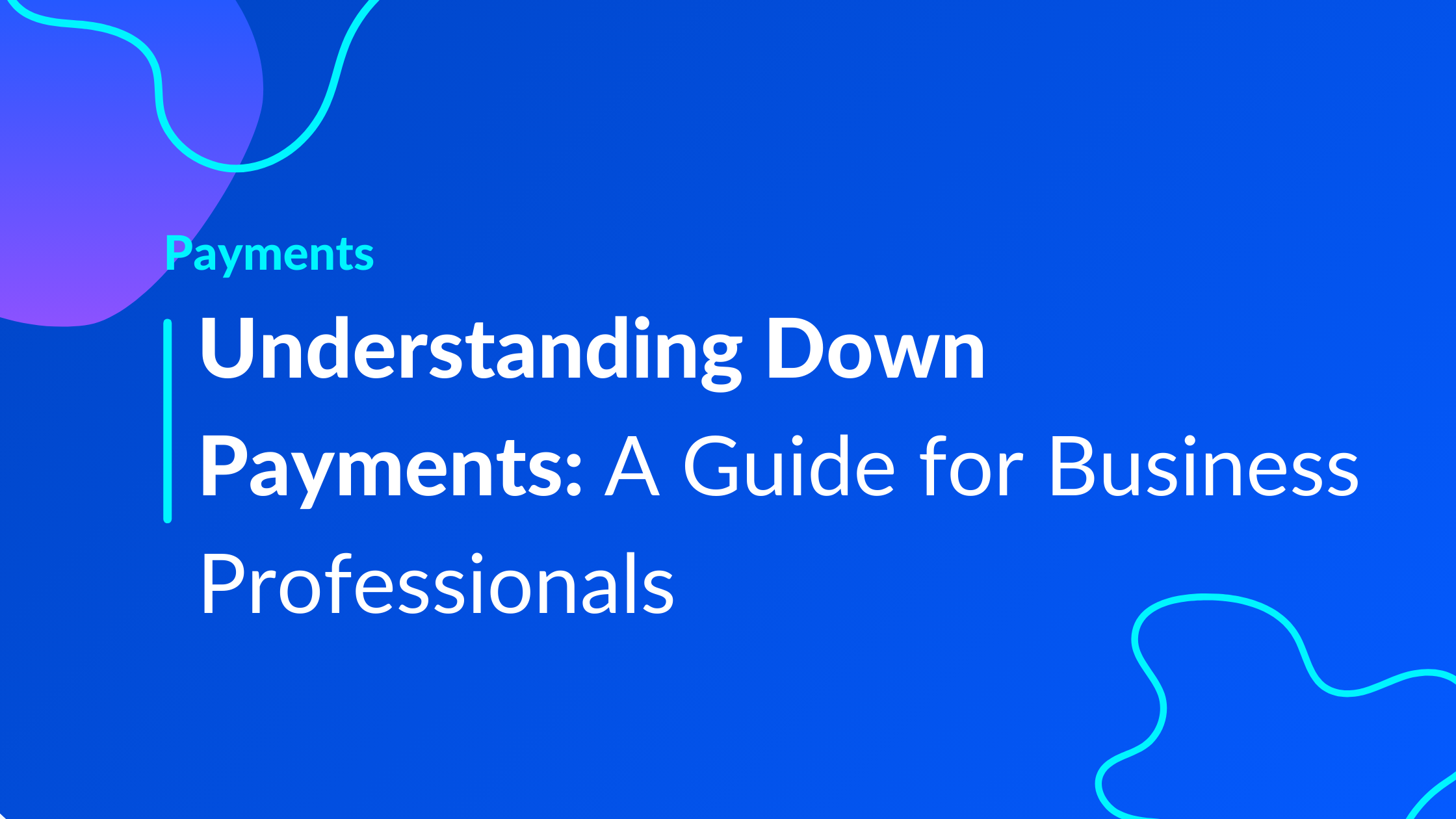In the world of business and finance, a down payment stands as a pivotal first step in securing a significant purchase or investment. It's the initial, upfront portion of the total amount due, paid in cash or equivalent, and it can significantly impact the dynamics of a financial transaction.
In our last post, we explored the best business practices for securing customer transactions. Here, we demystify down payments -
Whether you're a business leader at the helm or a financial administrator behind the scenes, grasping the significance of down payments and their strategic benefits for your organization is crucial for achieving enduring prosperity. So, let's begin!
What Exactly Is a Down Payment?
A down payment is essentially a commitment payment. It's the chunk of money you pay upfront when purchasing an expensive item or property or when securing financing for such purchases. This payment represents a portion of the total purchase price and is usually paid in cash. The remaining balance of the purchase price is then financed through a loan or other credit arrangements.
In business transactions, down payments are often required in real estate deals, large equipment purchases, or any situation where credit is extended. The size of a down payment can vary significantly but often ranges from 5% to 20% of the total purchase price, depending on the lender’s requirements and the type of purchase.
Why Are Down Payments So Important?
Down payments play a crucial role in the financial world for several key reasons:
1. Risk Mitigation for Lenders
A down payment reduces the lender's risk by providing them with an immediate cash infusion, which can be used to cover losses should the borrower default on the loan. It also demonstrates the buyer's skin in the game, indicating their commitment to the investment.
2. Improved Loan Terms
For the borrower, making a substantial down payment can often lead to better loan terms, including lower interest rates and reduced fee structures. Lenders view customers who can make substantial down payments as lower risk, which can translate into cost savings over the life of the loan.
3. Immediate Equity
In the case of most tangible assets, a down payment immediately creates equity in the purchased asset. This can be beneficial for businesses looking to strengthen their balance sheets or increase their net worth.
Utilizing Down Payments in Business
Down payments should not be viewed merely as a financial hurdle but as a strategic tool that can be utilized to secure better terms and demonstrate financial stability. Here are several considerations for businesses when managing down payments:
Budgeting and Planning
Effective budgeting is crucial for managing down payments. Businesses should plan their cash flows to ensure that making a down payment does not adversely impact their operational liquidity.
Negotiation
The size of a down payment can sometimes be negotiable. Businesses should not hesitate to negotiate the terms of a down payment to secure more favorable conditions.
Financing Options
Sometimes, the capital required for a down payment can be substantial. Businesses should explore all available financing options, including loans, lines of credit, or even partnerships, to cover the down payment without straining their resources.
Tax Considerations
Down payments and the subsequent financing arrangements can have tax implications. It’s essential to consult with a tax professional to understand how a down payment and the related loan might affect the business's tax situation.
Overall, down payments are crucial in business transactions, showcasing dedication to lenders and offering benefits like improved loan terms and immediate asset equity. Mastering the art of handling down payments is essential for business success, requiring meticulous planning, negotiation, and financial management.

Already using ConnectWise PSA and CPQ? With our new Quote to Cash functionality, as soon as a down payment invoice is automatically created in ConnectWise PSA - you're now provided the exclusive capability to then apply and restrict that invoice to the correct project, agreement, sales order, or ticket at a LATER date.
What formerly took up to 15+ steps, is now down to just three! Join our upcoming webinar on May 31 (ET) where you'll discover how to get paid upfront and close your cash gap as we deliver a detailed run-through of how this exclusive functionality works. 👇

